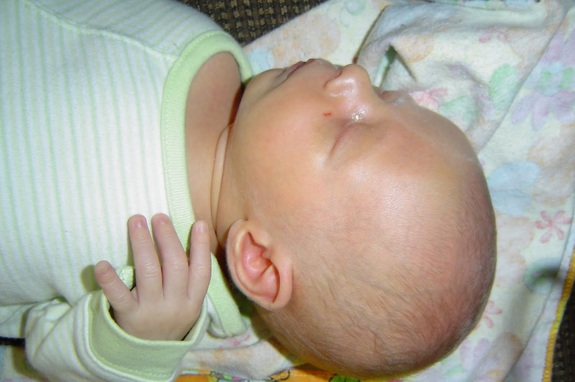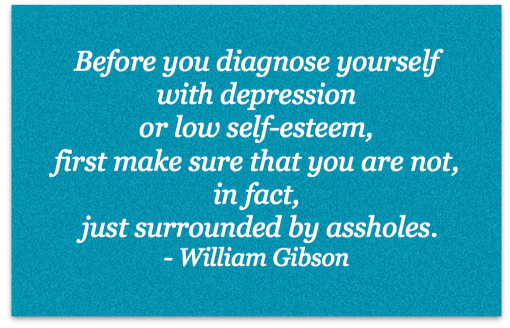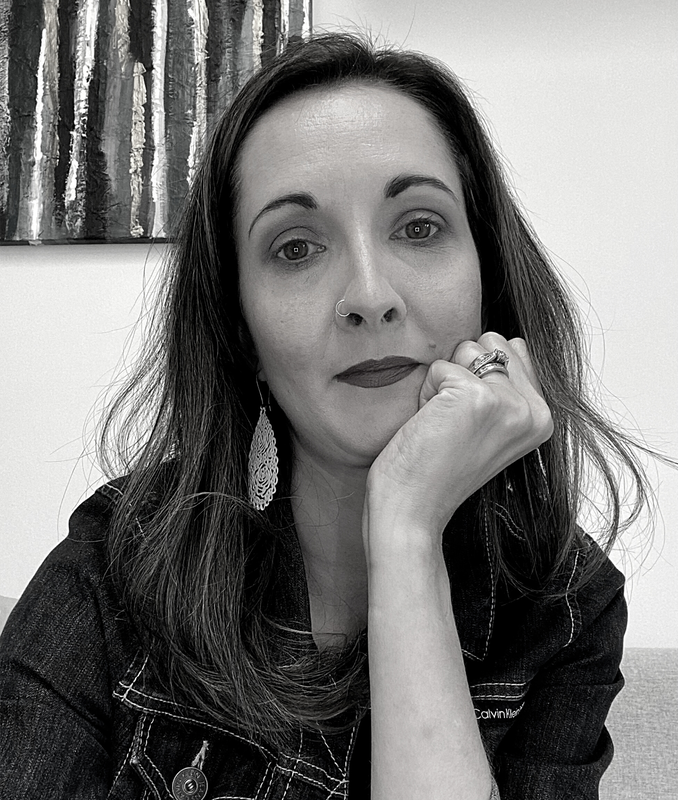|
In the area of breastfeeding support, education and advocacy often times those of us in this line of work are assumed to be anti-formula and not willing or unable to support the formula feeding families. People are often shocked to find out this is not actually the case, or at least not always the case. More and more within the education and work I do, we are discussing the non-breastfed baby. As we learn more about breastfeeding, we learn more about babies, mothers and families and the needs of babies, mothers and families. One of the most recent headlines that started a discussion between myself and a couple of friends was that breastfeeding has a positive effect on the mental health of children and adolescents; in fact the longer the child is breastfeed the more significant the benefits are. Interestingly, in this information released was the need to look at how the non-breastfed baby can be given similar benefits.  To do this we need to ask, what is it about breastfeeding that makes for this benefit? Is it the “milk” factor? We know that the fatty acids and other non-replicable components in breastmilk are great for brain development and growth and those hormones like leptin protects against stress in infants. What about the attachment factor? We know that breastfeeding mothers look into their baby’s eyes more, they touch their baby’s more, there is more skin-to-skin contact and in fact breastfeed babies have a stronger relationship with their mothers than with anyone else. Breastfeeding is a relationship builder between an infant and its mother. It is the first secure, attached relationship that a baby learns to trust. Healthy secure, attached relationships have been shown to be have a positive effect into adulthood. Are there other factors to explore yet? We can see that it is potentially a combination of factors that lead to this finding and benefit. Exploring the factors, I am able to answer the questions that arise from the mothers that are not breastfeeding when they see a headline like “Breastfed babies have fewer behavioural problems”. They do have honest questions of “What about my baby? Breastfeeding did not work for us.” (we do not need to get into the why it did not work here, that is a whole other blog post, or 10). They ask to be supported as equally as a breastfeeding mother would be or sometimes they do not ask for support at all because they fear the reaction. They might expect to see an eyeroll when they say they need to be supported as well. They may be unsure of what reactions they will get. They may expect to hear someone say if you would have tried harder you could have breastfeed or hear the stat of how many mothers truly physically cannot breastfeed. So well this *might* be true, it is sometimes too late for that information. Giving that info for future babies or other people they might support later can help, yes, indeed it may, but it does not answer the questions that she is asking right now; the question of what about my infant that I am not breastfeeding right now. I want to reassure these mothers that it should not be an eye roll and they deserve the information and support they need at that time. To these mothers, I say, goodness, if *I*, the one who will not say that formula feeding and breastfeeding are equal or that we should not continue the work we are doing for breastfeeding globally to have higher rates, longer durations, etc, can say that we still need to educate and support these mothers on infant feeding then more people should be able to see that. Like I mentioned, it may not be all about milk. Certainly, when you place breastmilk beside formula there are vast differences, that science cannot be disputed and formula companies will never come close to replicating breastmilk. Does that mean I would be happy if all babies had breastmilk from a bottle and were never at the breast, never held for feeds, never caressed by its mother? Certainly not. We need to educate society about the ACT of feeding infants and caring for our infants and the impact of these actions, good and bad. A question that serves food for thought that looks at just this idea; "If you had to choose one of these options, which one would you choose? 1) Would you breastfeed with formula being the substance that came out of your breasts or 2) Bottle feed breastmilk?" More questions arise around the impact of pumping breastmilk and bottle feeding vs feeding directly from the breast. Every mother will answer these questions in their own unique fashion, based on their experiences, education, situations and perceptions. Existing are the ideal, perfect breastfeeding relationships and co-existing are the handfuls of many "good enough’s". Good enough is not necessarily a bad thing. It can be a place of peace and harmony for those mother-baby dyad’s. Do I strive for 100% of the parents I help to have the best, most wonderful breastfeeding relationships, or can it be "good enough"? It would be so wonderful and we would all be fortunate to get to 100% but is that realistic? For now, good enough is acceptable for me when it is the choice the parents. We get there when parents have been supported and educated in the decision making process, as all parents should be. It might mean breastfeeding solely, artificial feeding or mixed feedings, it might be direct breastfeeding, it might mean pumping and bottle-feeding. Every families good enough will always look different. Where we fall short, I feel is in completing this responsibility of educating and then supporting, period. This is where I think “good enough” is not acceptable. This is where we need to improve and this is where I plan to focus. If you need support & education I offer a variety of services - doula support, lactation support and prenatal birth & breast-feeding classes. Contact me to find out more  Disclaimer: I am not a mental health care professional or provider. If you think you are suffering from any sort of mental illness I recommend seeking medical attention as needed. I will also add in that I do take mental health concerns seriously and this blog post in not intended to down play medical concerns. Before you diagnose yourself with depression or low self-esteem, first make sure that you are not, in fact, just surrounded by assholes. - William Gibson When I first came across this quote, I immediately identified to it as an adult, as an individual and as I related to other adults. More and more I have been thinking about this in the context of my work, my work with new families, young babies and children & different relationships forming in homes. The rate of postpartum mood disorders is on the rise. Baby blues, anxiety, depression and psychosis are a very real reality for many new mothers and fathers. We mostly see it in the context of mothers but more and more research shows our fathers are impacted by mood disorders as well. Let’s, however, just step back for a minute and think about the above quote. “Before you diagnose yourself with depression or low self-esteem, first make sure that you are not, in fact, just surrounded by assholes.” I don’t want to be rude but let’s face it, babies are assholes, toddlers are assholes and kids can remain like that as they grow up. They certainly don't mean to be but they are incompetent & demanding, they can be obnoxious and rude, they interrupt your every meal and all your sleep. You can’t even think about peeing without baby waking up and crying, let along move an inch to try to get up and pee. They need to be fed constantly, hanging off your breast, YOUR breast no longer belongs to you. When they are not feeding, they need you to hold them or they will turn the reddest of red and blow horrible smoke from their ears. They pee and poop ALL.THE.TIME. Rudely, they sometimes don't even wait for the new diaper to get on before they shit all over you or shower you in pee. You imagine stuffing that thing back inside you, because as awful as it was to have that watermelon come out the lemon, they are way easier to take care on the inside, right? Well, too bad, there is no turning back. There is only moving forward with this asshole in your life. By now you know I am not serious in calling babies assholes, but you can see my point. Life is HARD with a new little person to care for. The real assholes of the world are hard enough to put up with, but now you have to put up with the smallest of them all, ALL the time, because YOU created it after all, YOU wanted this. Now you have to do it when you have zero sleep, zero nutrition and probably zero clue how to actually take care of this baby - I can guarantee you it did not come with a manual. Add in some hormones and everyone’s opinion of what you should be doing and it is easy to see why one would end up with signs and symptoms of a mood disorder or postpartum depression. So, how about we get serious about what we can do about this baby and get through what will be one of the most challenging times of your life. Self-care is big. You don't want to lose yourself in this. Having a baby WILL change you, but doesn’t need to consume you. What do YOU need? What does your partner need? Make a plan to have that happen. 15 minutes in the shower, making two sandwiches instead of one when your partner leaves for work, tea out with friends. Asking friends to bring you food when they come visit the baby. By the way, when they come visit, the asshole will switch personalities and put his nice guy face on. Have someone come help with light house work and laundry once a week. It’s the small things that make a massive impact. Communication is huge. Tell each other how you are feeling about the changes in life and the new demands. If you are reading this before having your baby, start that conversation now. Brainstorm the different ways to achieve self-care that will work after baby. Be open and flexible in changing those plans, if needed. Just talk to each other and others about what is happening in your new world. Just keep the conversations going. And find others who will listen to you both. Just someone who will let you get it out. I promise, they won't mind. Support. SUPPORT. SUPPORT. This is a must. You need to build a team of support people. Before baby is ideal but may not have happened and you may now just be building a support team. Who are we talking about? Family, friends, community resources - your health care providers, doula’s, peer support groups. Everyone’s team is going to look different depending on the needs they have. What is important to know is that support is going to make one of the largest impacts in how you feel about everything and how stable your mood will be, how you will interpret your experiences and what the outcome of the situation is. It is important to identify your needs and equip yourself with the tools to get there. It is vital to know what your support options are because without options you have no choices. So, start now by identifying your needs and making a list of supports. If you get lost and have a need but don't know how to get the support you need to have that need met, please ask! I am here to help in this time of transition in your life.  In 1988, over 25 years ago, the Supreme Court of Canada ruled that discrimination against pregnant women is a form of discrimination on the basis of sex. The biological fact is simple; only women have the capacity to become pregnant and therefore discrimination on the basis of pregnancy is a form of sexual discrimination. In Saskatchewan, as in other provinces in Canada, women cannot be discriminated against on the basis of pregnancy. This is upheld in both the prenatal and post-natal period. Women who are expecting or have recently given birth are entitled to reasonable accommodations that may be necessary because of their pregnancy or having a baby. In Saskatchewan, this included women who are breastfeeding as stated by the Saskatchewan Human Rights Commission. One is left to ask them, why is it that after 25 years since this Court ruling, are breastfeeding women still being discriminated against? Experiences of Saskatchewan women being discriminated against in the last two years include mothers being asked to stop breastfeeding on public transit, a lifeguard at a public pool asking a nursing mother if she can go to the change room to nurse, in another pool in another city a mother was asked to get another towel to cover, another mom is asked to stop breastfeeding her infant while she is in a family restaurant and a mother was kicked out of a mall for nursing in the food court. The list has more, that was just a few. I am left to assume that the people who complained about these women and the people who asked them to stop nursing in public did not think of their actions as being discriminatory and least of all against women on the basis of their sex, but it is. We need more public awareness because these occurrences create barriers for all mothers and their babies. Furthermore, staff and establishments could be left paying a legal consequence because patrons have asked staff to intervene. Who gets to tell the patrons that they are indeed wrong and that the staff cannot and will not approach the mother and child? What if the staff does not know and they approach the mother and child? Legal consequences fall on whom then? The public needs to be aware of this law and the rights of the mother baby dyads as do businesses and their staff. It would seem as if society is behind the law on this act, this biological act and need of all infants. It is time that society steps forward 25 years on this issue and catches up to the law. The evolution period of this law has had more than enough time. The laws can help shape societal norms and I, for one, think that it is time this law comes into play to help move the norm of infants and children breastfeeding in our society. It is no longer socially acceptable to drink and drive and the laws definitely helped to raise people's awareness of the serious consequences of that behaviour. The laws that protect people against discrimination on the basis of sex have been around for many decades in Canada. These laws are included in the Canadian Charter of Rights and Freedoms, which is part of the Constitution - the highest law in our country. The fact is that women are still being asked to cover-up, move or leave venues, almost 25 years after the Supreme Court of Canada’s decision that discrimination around pregnancy and childbirth and breastfeeding is discrimination on the basis of sex. Societal norms in regards to breastfeeding have not changed to keep up with the law and it is time that it does. |
Kim Smith
|
 RSS Feed
RSS Feed
